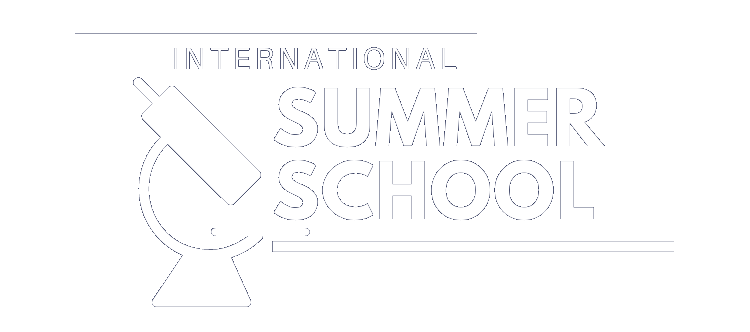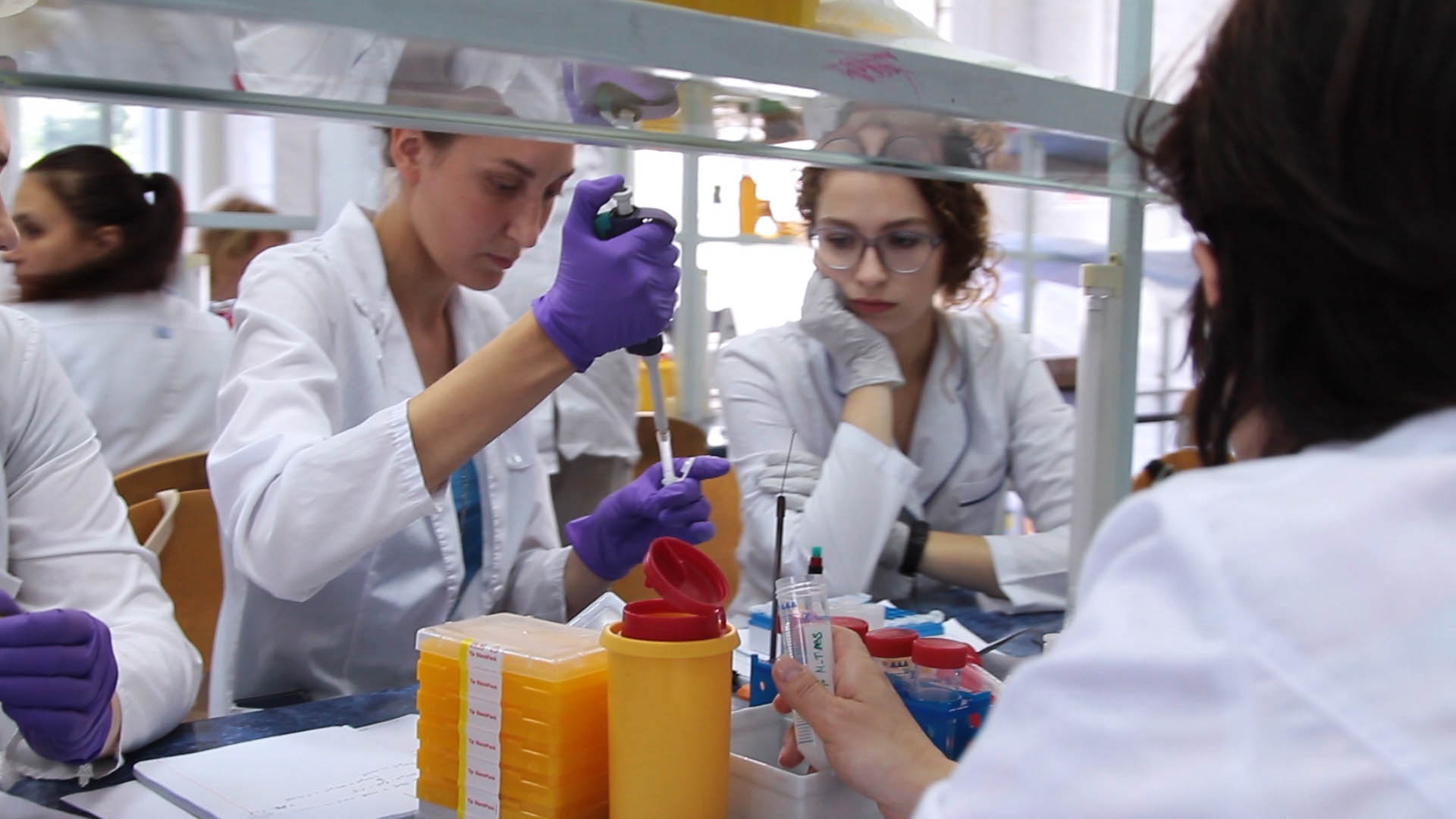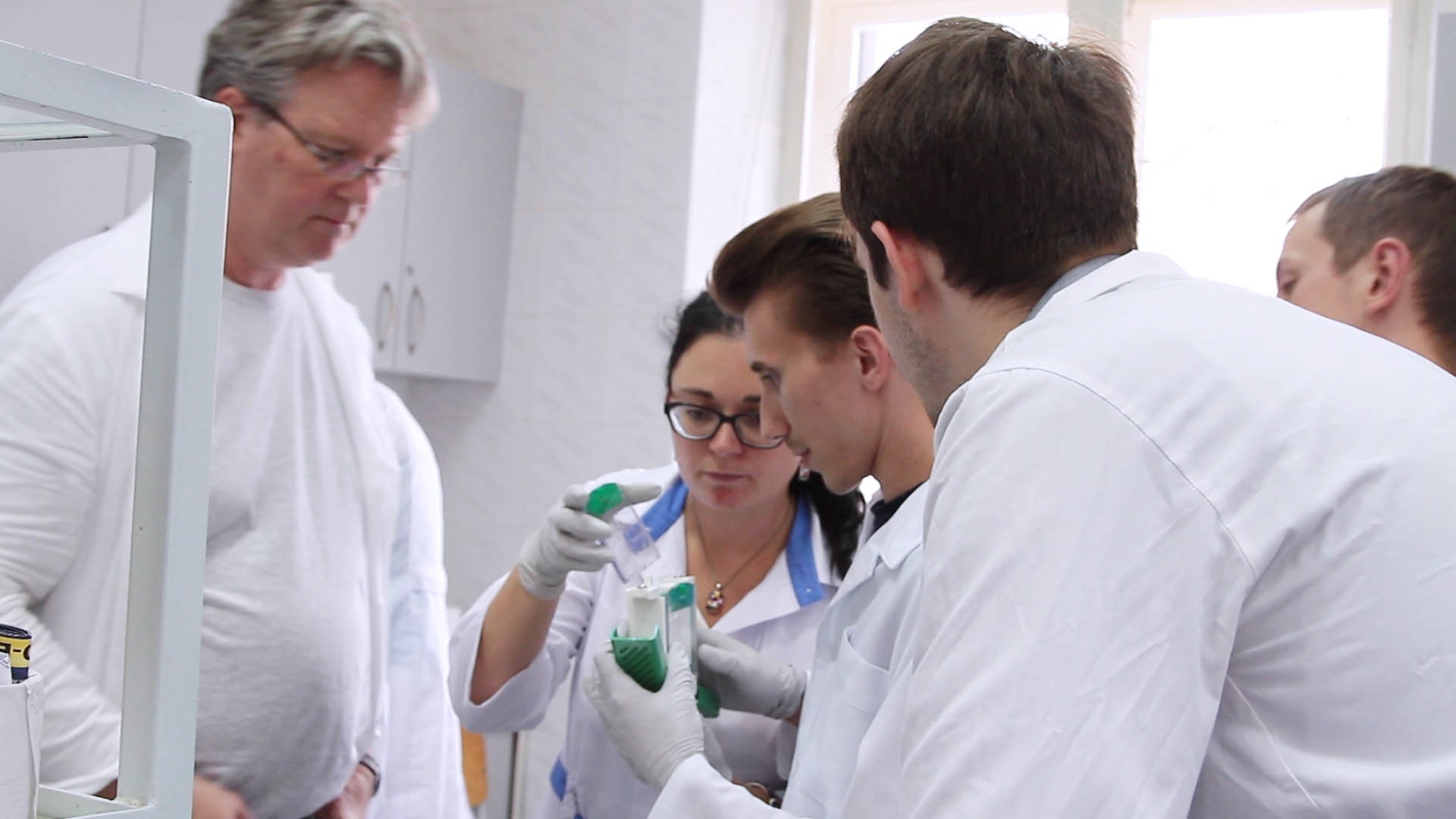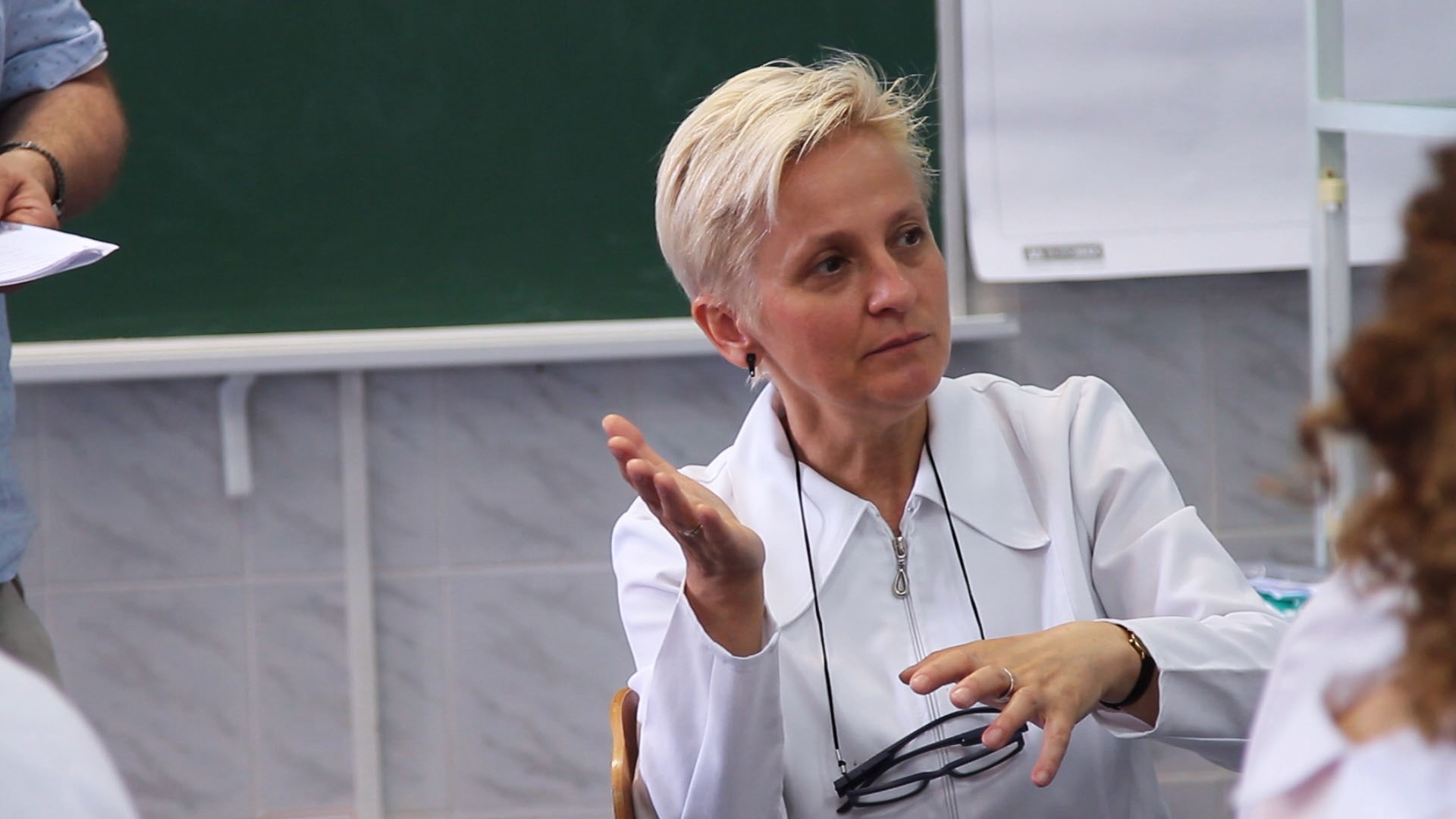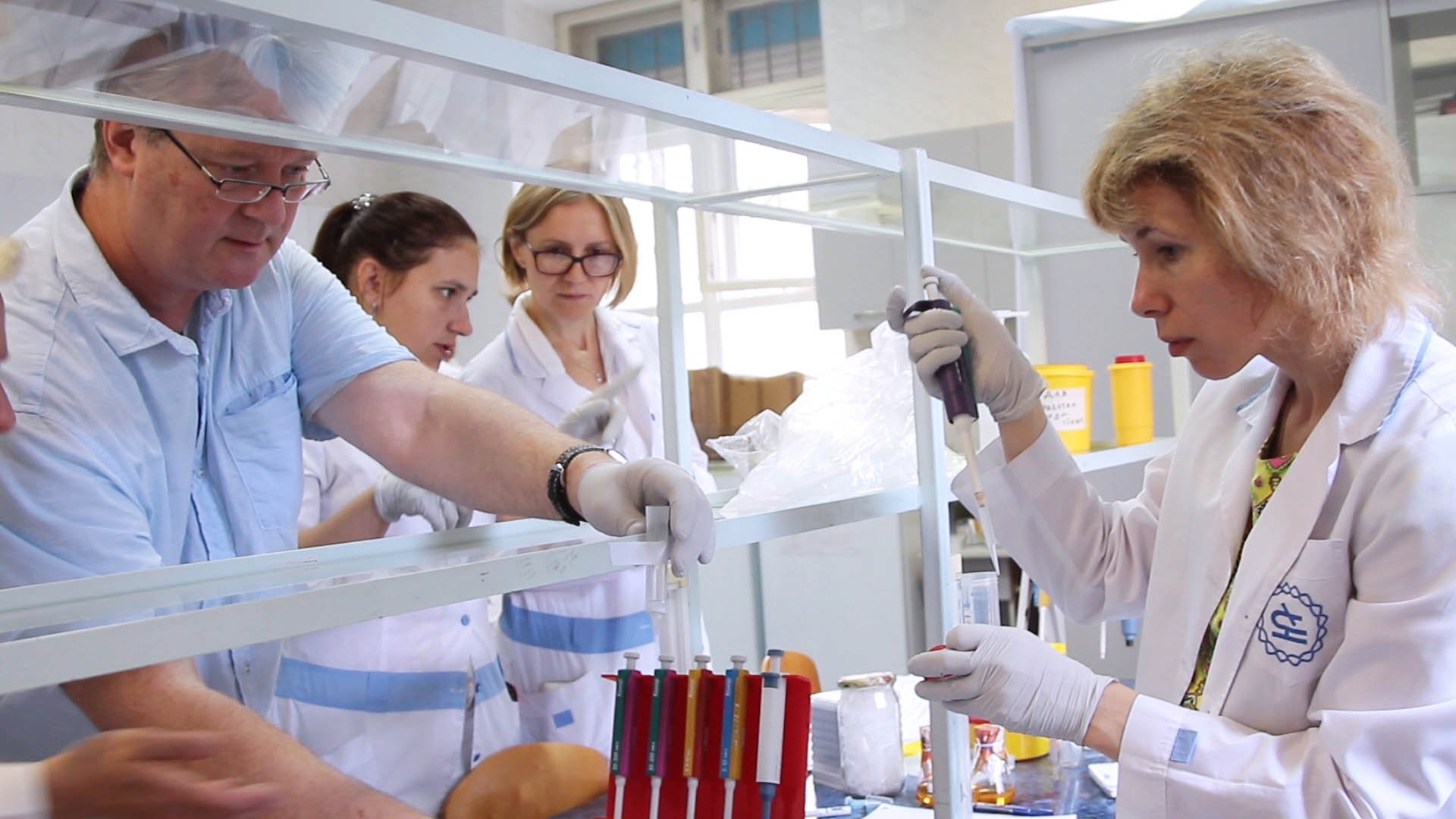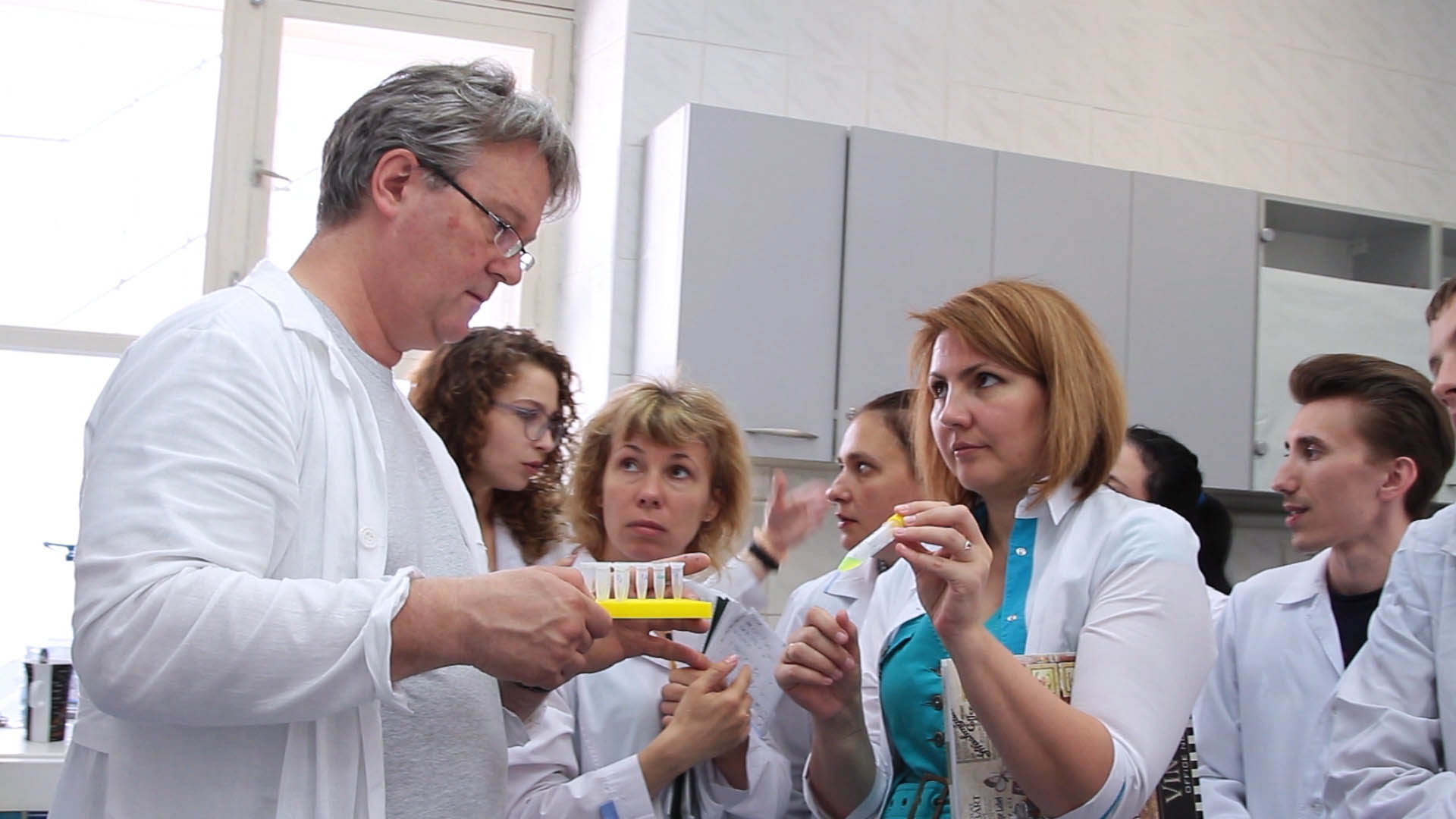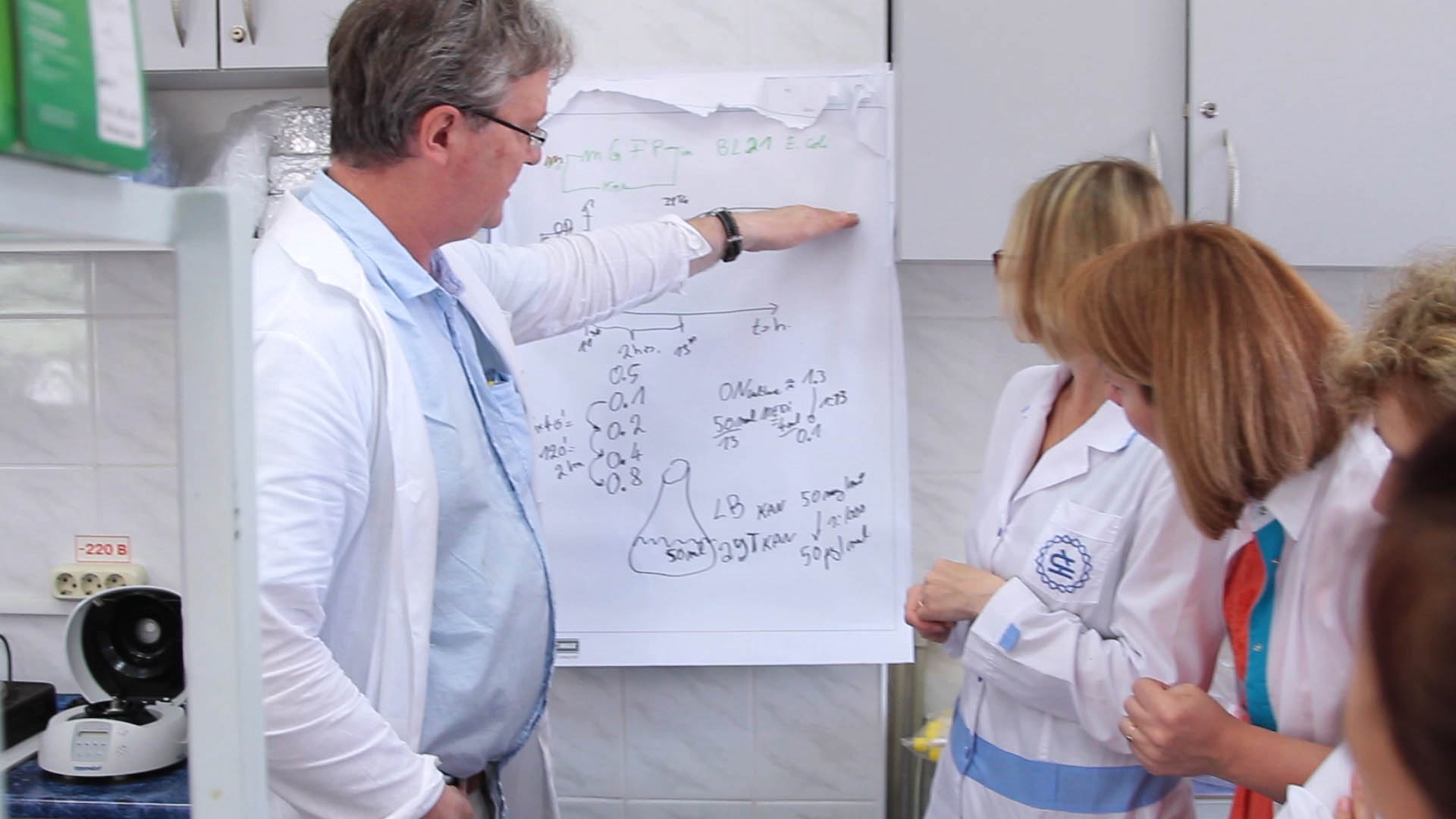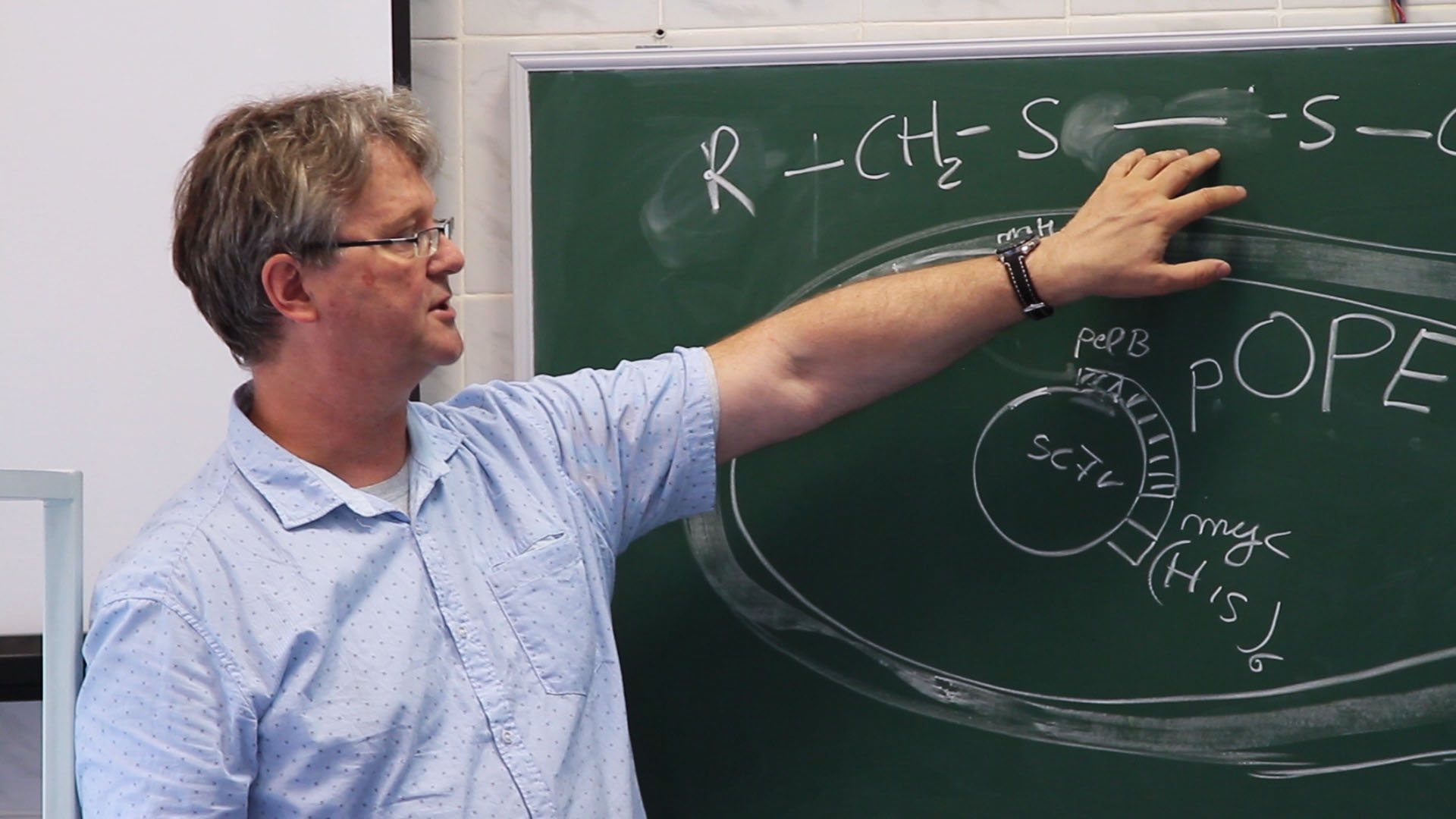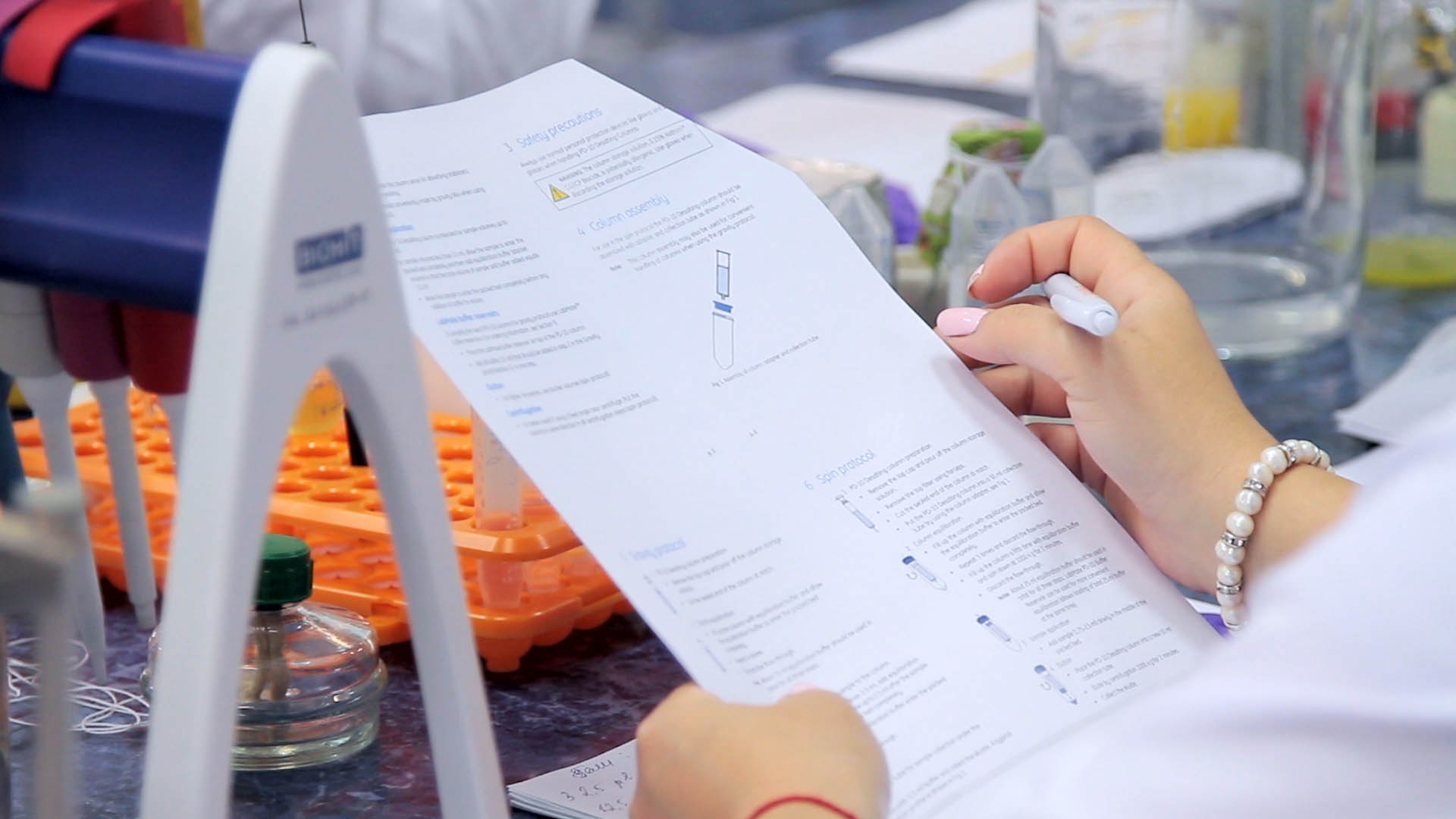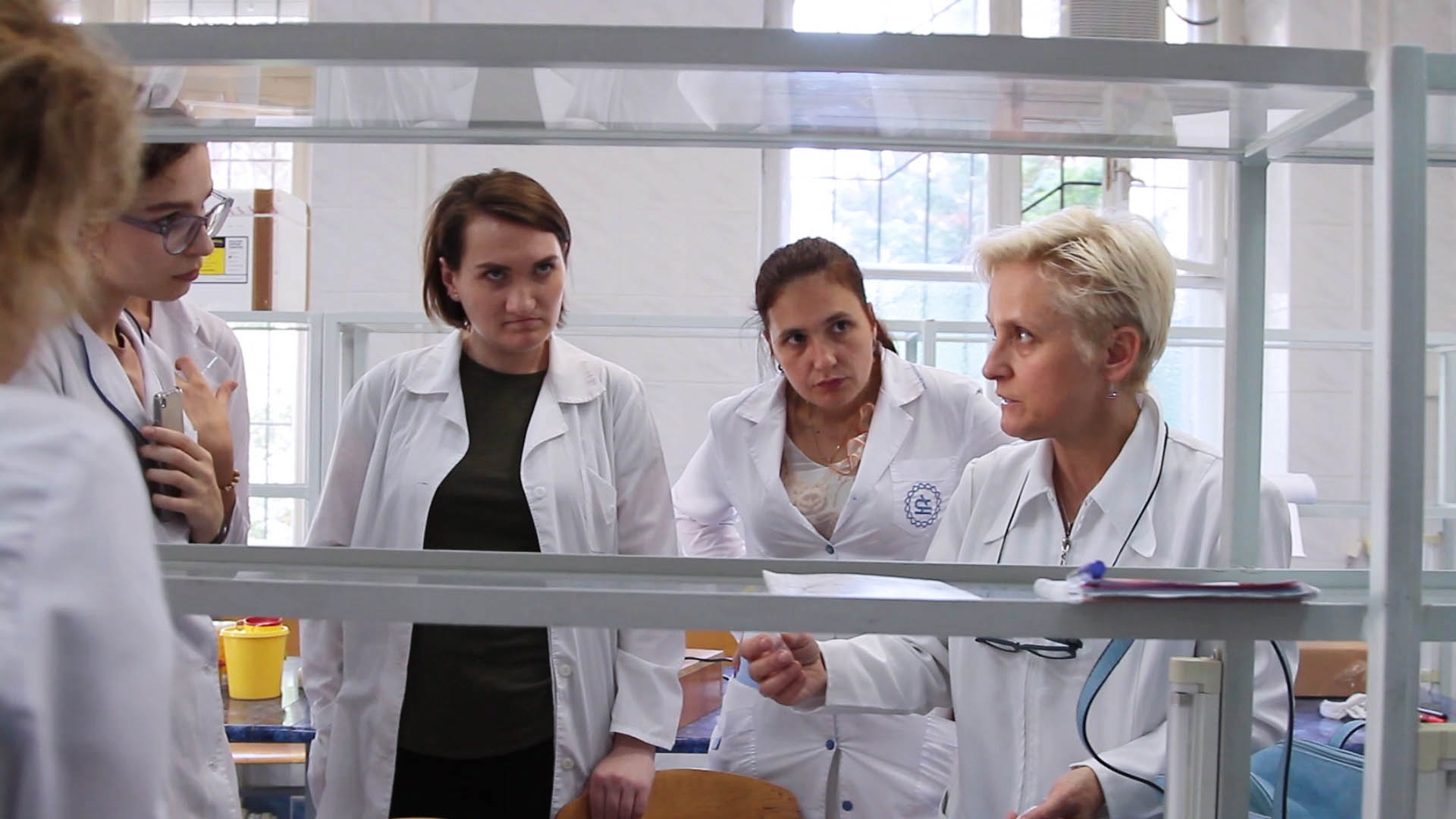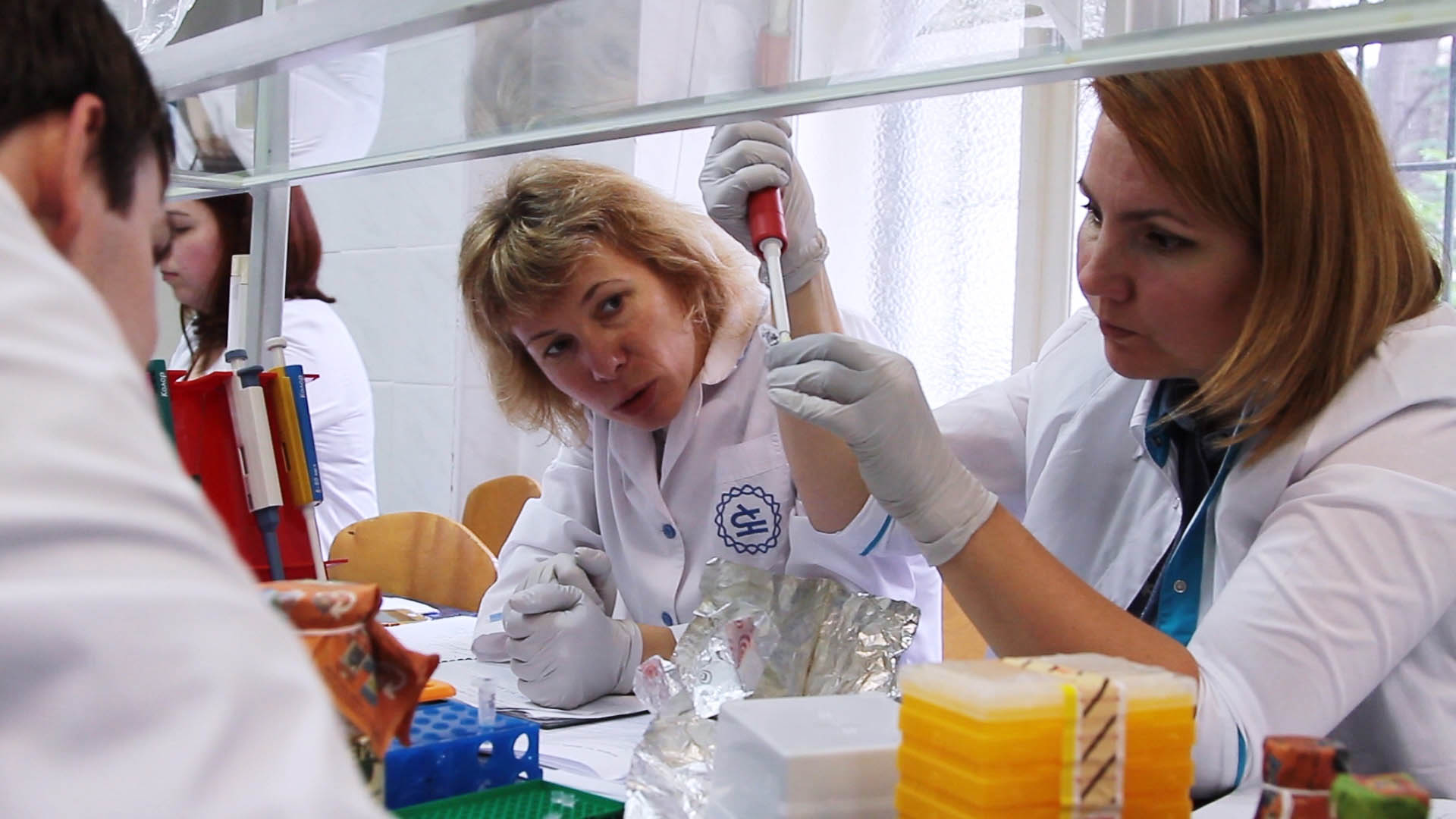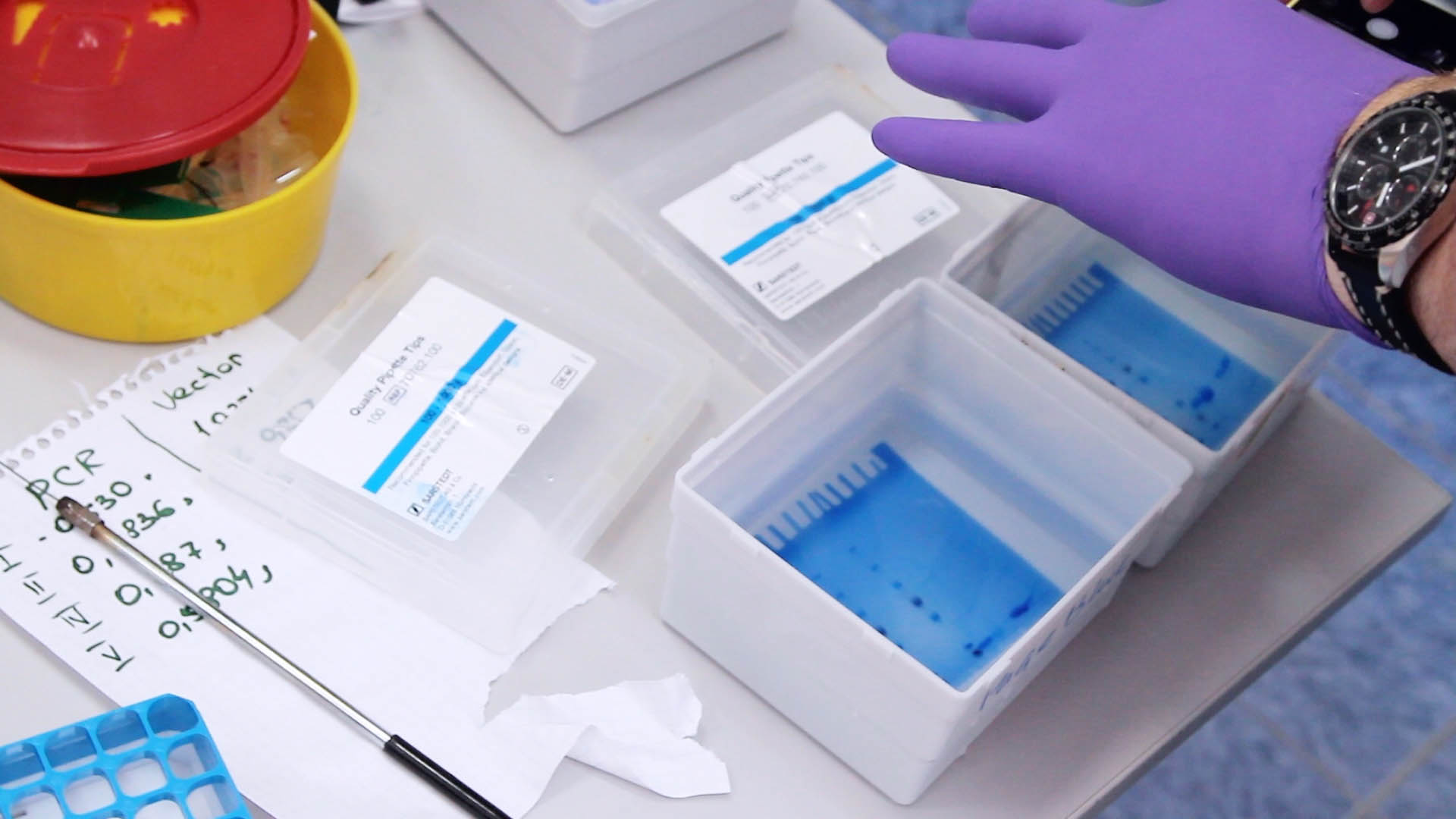XІІI INTERNATIONAL SUMMER SCHOOL-CONFERENCE «MOLECULAR MICROBIOLOGY AND BIOTECHNOLOGY»
PROGRAM
June 4, Monday
9:00 - 13:00 Registration
14:00 - 14:30 Official opening
14:30 - 15:30 Valentyn Pidhorsky Lecture “Recent advances in biotechnology in Ukraine”
June 5, Tuesday
10:00 - 17:00 Nataliia Vasylieva. Lecture «The importance of bioinformatics for modern biology»
13:00-14:00 Lunch
June 6, Wednesday
10.00 - 17:00 Nataliia Vasylieva. Practice work “Introducing in R. Base operations in R for biological and bioinformatics investigations”.
13:00-14:00 Lunch
June 7, Thursday
10.00 - 17:00 Nataliia Vasylieva Lecture “Cluster Analysis. Concept, methods and algorithms of cluster analysis. Algorithms of calculation in cluster analysis that are used in biology. Criteria of classification quality”.
Practice work. “Cluster analysis in R”
13:00-14:00 Lunch
June 8, Friday
10:00-17:00 Nataliia Vasylieva Practice work “Matlab as powerful tool for biological and bioinformatics investigations”
13:00-14:00 Lunch
June 11, Monday
10:00 - 17:00 Pavlo Karpov. Lecture and Practice work
Part 1 “Concepts, historical milestones and place of bioinformatics in modern biology. The role, methods and application of in silico research. Bioinformatics prospects. The Protein Information Resource (PIR). The National Center for Biotechnology Information (NCBI). Structure of NCBI: Literature, Health, Genomes, Genes, Proteins і Chemicals. Databases: primary (GenBank), secondary (UniProtKB) and specialized databases. Entrez. Working with Whole Genome Data. MapViewer.”
Part 2 “Definition of homolog, ortholog and paralog. IUPAC. Analysis of biological text. Nucleotide and protein sequences formats. Sequences and structure homology, conservatism, similarity and identity. Motive, Log and Pattern analyses. Application of substitution symbols. Database scanning”.
13:00-14:00 Lunch
June 12, Tuesday
9:00 - 10:30 Thomas Haertlé. Lecture “Harnessing of lactic acid bacteria for the reduction of immunogenicities”.
10:45 - 17:00 Pavlo Karpov. Lecture and Practice work
Part 1 “Natural nucleic acids - DNA and RNA, and their role in replication and expression of genetic information. The structure of DNA. The most important properties of the genetic code, triplet codon, commaless genetic code, discreteness, specificity, degeneracy of genetic code, collinearity, terminal codons, versatility, etc. Pro- and eukaryote genes. Features of RNA deposition (bioinformatic point of view)”.
Part 2 “The levels of protein organization. Key features of protein structure. The primary structure. Secondary structure: α-helix and β-layers. Protein folding and tertiary structure. Local tools and network services for prediction of protein secondary structure elements.
13:00-14:00 Lunch
June 13, Wednesday
10:00- 17:00 Pavlo Karpov. Lecture and Practice work
Part 1 “Sequence comparison and alignment. Methods of comparison in molecular biology. Sequence weighing matrices and their applications. Local and global sequence alignment. Pairwise and multiple alignments. Profile alignment. Align of protein 3D-structures. Biopolymers clustering. The logic behind phylogenetic trees. Biological and mathematical components of phylogeny. Basic terms. Cladistic analysis. Phylogenetic analysis and topology of tree. The NJ and UPGMA methods. On-line servers and local tools of phylogenetic analysis”.
Part 2 “Concept of the protein domain. Domain structure and architecture. In silico approaches to predict domain architecture. On-line tools: SMART, Pfam, PROSITE. HMM (Hidden Markov Model’s). Comparison and alignment of proteins structure. Identification of protein function based on its domain structure and composition”.
13:00-14:00 Lunch
June 14, Thursday
10:00 - 17:00 Pavlo Karpov. Lecture and Practice
Part 1 “Protein Data Bank. History, specialization, format of PDB-records and tools. The structure of *.pdb file. Structural databases. Visualization of biomolecular structures – styles of representation. Line, stick, ribbon and cartoon representations. Visualization of molecular surfaces. Local and network software for visualization of molecular models”.
Part 2 “The reconstruction of macromolecules structure in silico. Methods of protein spatial structure modelling. Homology modeling. Relation between sequence and spatial structure of the protein. Local and On-line tools of 3D-structure modeling”.
13:00-14:00 Lunch
June 15, Friday
9:00 - 10:30 Galyna Gergalova. Lecture. “Biological weapons as weapons of terror: perspectives in the threat”
10:45 - 17:00 Pavlo Karpov. Lecture and Practice
Part 1 “Libraries of low-molecular compounds (ligands). PubChem, UCSF ZINC, RCSB PDB Ligands (Ligand Expo), KEGG LIGAND, BindingDB. *.MOL (Molfile) / *.SD (Structure-Data) and Tripos Mol2 (*.mol2) files. Notepad++ etc. De novo modeling of ligands. Virtual libraries of ligands. Selection criteria for drug-like compounds: rule-of-five, etc. Conformational mobility and stereoisomers of ligands”.
Part 2 “Libraries of molecular targets, ligands and ligand-protein complexes as a basis for the rational drag-design, molecular docking, virtual screening, QSAR, and etc”.
13:00-14:00 Lunch
June 18, Monday
9:45 - 11:15 Fedir Tovkach. Lecture
“Molecular genetics and molecular microbiology. Modern concepts in molecular microbiology. Biological metronome. Modern classification of pro- and eukaryotic microorganisms and viruses. Domains of life. Primary sequence of genomes. Bacterial genomics. The topology of entire bacterial genomes. Clusters of ortologic genes. The meaning of “ smallest genome”.
11:30 - 13:00 Sergey Mikhalovsky. Lecture: Research funding: opportunities for Ukrainian individuals and organisations. Part I: Opportunities; Part II: Grant writing.
13:00-14:00 Lunch
14:00-15:00 Luba Mikhalovska. Lecture: Coronary stents: history, science and current trends
15:00-17:00 Alexej Schmidt. Lecture: Introduction to the course “Cloning, Protein Expression and Purification”.
June 19, Tuesday
9:45 - 11:15 Fedir Tovkach. Lecture “Genomic of prophages and pathogenicity islands. Phage lysogenic conversion. Phage toxins. The concept of "morons". Islands of pathogenicity and secretion system type III”.
11:30- 13:00 Olexy Shmidt "Cloning, Protein Expression and Purification”
13:00-14:00 Lunch
14:00-15:30 Oksana Yurchenko. Lecture “Sequence as method of studying viruses”.
15:45-16:15 Alexej Schmidt. Lecture about Cloning and Tricks .
16:15-17:00 OlenaRakhimova. Lecture “Quality in Science”
June 20, Wednesday
9:45 - 11:15 Fedir Tovkach. Lecture
“Genomic of the plasmids. Plasmid determinants of pathogenicity. Plasmid-based vectors.. Molecular genetic of plasmid pTi – С58 Agrobacterium tumеfaciens. Transgenic plants”.
11:30-12:00 Alexej Schmidt. Lecture about the pET expression system.
12.00-13:00 Olena Rakhimova. Lecture Quality in Science 2nd part .
13:00-14:00 Lunch
14:00-17:00 Nataliia Vasylieva. Practice “Phylogenetic analysis. MatLab, MEGA, R”.
June 21, Thursday
9:00 - 10:30 Fedir Tovkach Lecture
“ Bacterial transposons, IS elements, integrons and genetic cassettes. The mechanism of formation the multiple antibiotic resistance in bacteria. The concept of inside genome rebuilding - genomic engineering. Defective bacteriophages and bacteriocins. Role in interbacterial antagonism”.
10:45-12:15 Oleksandr Korneliuk. Lecture “Computer biology and bioinformatics in the post genomic era”.
13:00-14:00 Lunch
14:00-17:00 Oleksandr Korneliuk. Practice “Useful cases in molecular modeling of biopolymers and their structural complexes”. “High-Performance Computing and molecular dynamics simulations of proteins”
June 22, Friday
9:00-10:00 Fedir Tovkach Lecture
“Autonomic genetic elements of bacteria. Insertion sequences, transposons, restriction-modification system, plasmids, bacteriophages, pathogenicity island. The hierarchy of mobility and autonomous genetic elements. The role of autonomous genetic elements in the formation of pathogenic bacteria”.
10:10- 11:40 Oleksandr Korneliuk. Lecture “Computer grid technologies and their applications in molecular biology”.
11:45-13:00 Andriy Luzhetskyy. Lecture ”Actinobacteria biosynthetic potential: bridging in silico and in vivo“.
13:00-14:00 Lunch
14:00-17:00 Oleksandr Korneliuk. Practice “Grid computing and infrastructures for biomolecular research" “Virtual Laboratory MolDynGrid as efficient infrastructure for automation of molecular dynamics simulations (moldyngrid.org)”
June 23, Friday
10:00 Closing of XІІI International Summer School
Departure of participants
З 4 червня по 20 червня 2018 року на кафедрі мікробіології, вірусології та біотехнології Одеського національного університету імені І.І. Мечникова спільно з Інститутом мікробіології і вірусології імені Д.К. Заболотного НАН України, за підтримки Товариства мікробіологів України імені С.М. Виноградського та Спілки біологів і біотехнологів Одеси проходила ХІІІ Міжнародна Літня школа-конференція «Молекулярна мікробіологія і біотехнологія» за основним тематичним напрямом Біоінформатика.
Серед слухачів Літньої школи-конференції були молоді вчені та аспіранти з університетів та наукових закладів України (Одеський національний університет імені І.І. Мечникова, Дніпровський національний університет ім. Олеся Гончара, Запорізький національний університет, Національний науковий центр «Інститут експериментальної і клінічної ветеринарної медицини», м.Харків, Київський національний університет імені Тараса Шевченко).
У роботі школи як лектори брали участь заступник директора ІМВ НАНУ завідувач відділом молекулярної генетики бактеріофагів, д.б.н. Товкач Федір Іванович, д.б.н., професор, член-кор. НАНУ, завідувач відділу білкової інженерії та біоінформатики Інституту молекулярної біології і генетики НАНУ, завідувач кафедри молекулярної біотехнології та біоінформатики Київського національного університету імені Тараса Шевченка Корнелюк Олександр Іванович, д.б.н., професор, член-кор. НАНУ, завідувач відділу молекулярної біології Інституту біохіміх ім.. О.В. Палладіна Мінченко Олександр Григорович,к.б.н., с.н.с., зав. лабораторією біоінформатики та структурної біології Інституту харчової біотехнології та геноміки НАНУ Карпов Павло Андрійович, ст.н.с. Інституту біохімії ім. О.В. Паладіна НАН України, секретар Української асоціації біобезпеки (УАБ), к.б.н. Гергалова Галина Леонідівна, доцент кафедри мікробіології, вірусології та біотехнології ОНУ імені І.І. Мечникова к.б.н. Васильєва Наталія Юріївна, доцент кафедри комп’ютерної алгебри та дискретної математики Одеський національний університет імені І.І. Мечникова, к.фіз-мат.н. Савастру Ольга Володимирівна, професор Інститут сільського господарства м. Нант (Франція) Томас Хертле, професор університету Брайтона Сергій Міхайловський, співробітник університету Брайтона Любов Міхайловська, співробітник Департаменту медичний біосенсорів Алексій Шмідт, співробітник кафедри медичної хімії та біофізики університету Умеа Олена Рахімова (Швеція).
Лекційний курс ХІІІ Літньої школи з молекулярної мікробіології і біотехнології висвітлював питання бактеріальної геноміки, геноміки бактеріофагів і островів патогенності, геноміки плазмід, сучасного погляду на еволюцію мікроорганізмів, науковим концепціям в молекулярній мікробіології, бактеріальним транспозонам, ІS-елементам, інтегронам і генетичним касетам, структурній біоінформатиці. Досить багато часу було присвячено питанням клонування білків.
Цікавими і інформаційними були лекції Томас Хертле, який на власних дослідженнях показав необхідність інтеграції підходів класичної мікробіології і методів біоінформатики in silico.
Велика частина лекційного часу була присвячена питанням біоінформатики і її застосуванню у сучасної біології. Лекції Карпова П.А. були присвячені особливостям досліджень in silico та взаємодії біоінформатики з іншими галузями, специфічності генетичного коду та сучасним методам його налізу; методам вирівнювання послідовностей, використанню методів кластерного аналізу для вирішення біологічних завдань, фолдінгу білків, аналізу тривимірних структур та ідентифікація функції білка на підставі структури і доменного складу. Додатково були розглянути питання пов’язані з використанням бібліотек низькомолекулярних хімічних сполук: PubChem, ZINC, RCSB PDB Ligands (Ligand Expo), KEGG LIGAND, BindingDB; бібліотеки макромолекулярних мішеней, лігандів і ліганд-білкових комплексів, як основи раціонального драг-дізайну, молекулярного докінгу та високопропускного віртуального скринінгу.
Лекції Сергія Міхайловського були присвячені актуальним питанням подання проектів і пошуку партнерів серед світової наукової спільноти.
Корнелюк О.І. на своїх лекціях на прикладі грід-технологій показав необхідність інтеграції комп'ютерних знань і навичок в біологічні області, пов'язану з розвитком напрямку постгеномної біоінформатики.
На практичних заняттях учасники отримали навички програмування в використанням язиків R, Python і Biopython, вирішували завдання пов’язані з використанням кластерного аналізу, філогенетичного аналізу, побудови філогенетичних дерев. Опонували роботу з біологічними базами даних – GenBank, UniProt, PDB та інші. Отримали навички роботи з доменами: прогноз доменної архітектури in silico; інструменти SMART, Pfam, PROSITE. HMM (Hidden Markov Model’s); порівняння та вирівнювання структури білків. Навчились візуалізувати тривимірні молекулярні моделі in silico. Ознайомились з можливостями використання грід-технологій для моделювання молекулярної динаміки.
